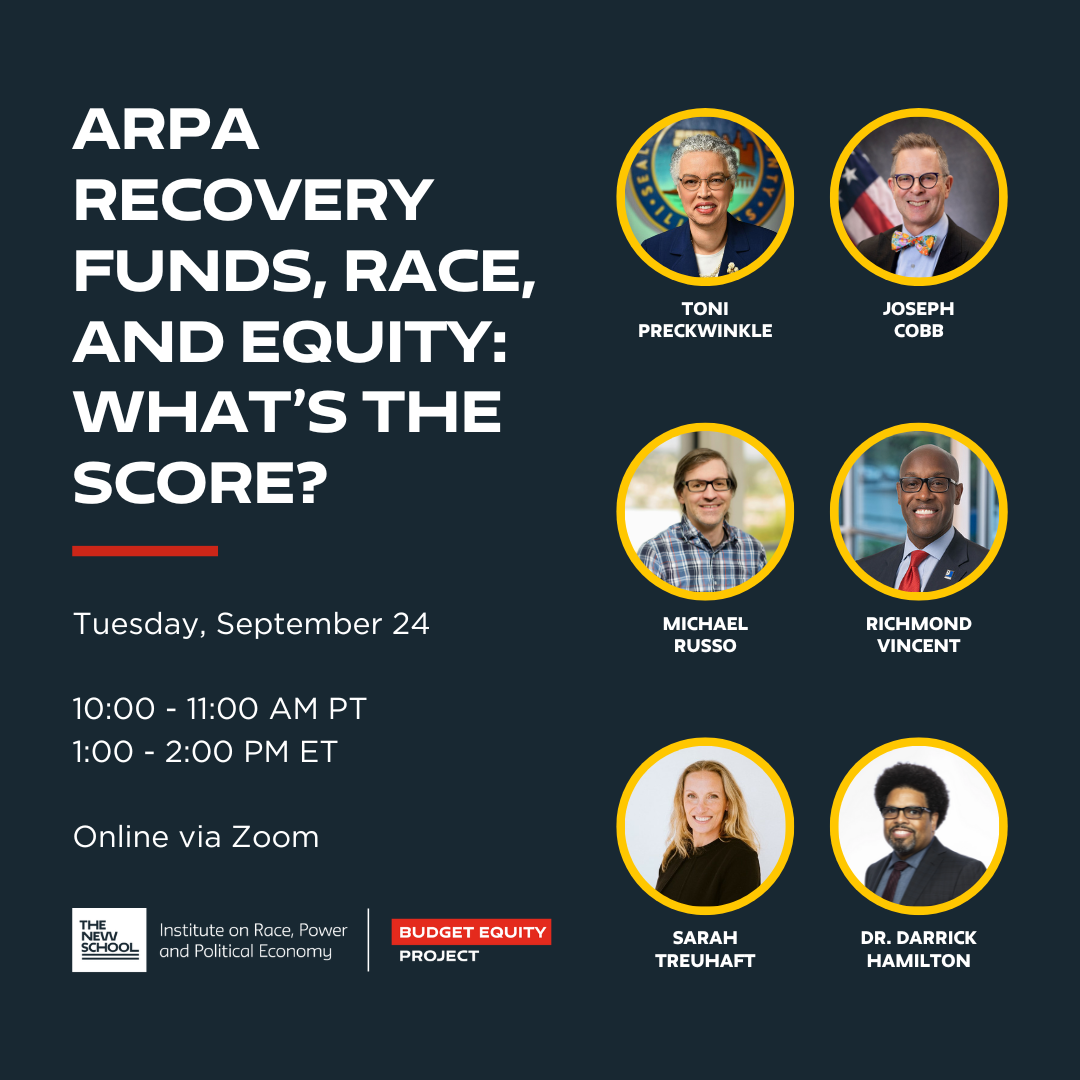
- This event has passed.
ARPA Recovery Funds, Race, and Equity: What’s the Score?
September 24, 2024 @ 1:00 pm - 2:00 pm

The American Rescue Plan Act of 2021 (ARPA) provided an unprecedented $130 billion in flexible funding for cities and counties to use for pandemic relief and longer-term, transformational investments. For the first time ever, federal recovery funds were guided by the Biden administration’s policy to advance equity by targeting resources to the communities of color, tribal communities, and low-income communities disproportionately negatively impacted by the pandemic and systemic inequities.
Recognizing the potential for the ARPA investments to address long-standing inequities, the Institute on Race, Power and Political Economy at The New School is tracking how cities and counties are spending their ARPA fiscal recovery funds and documenting best practices, examples, and lessons learned. Anchoring our analysis is a 40-question ARPA Equity Assessment rubric that measures performance across six dimensions of equitable public investment.
Join us for the launch of our report and interactive website on Tuesday, September 24 at 10:00-11:00 AM PT / 1:00-2:00 PM ET, where you will find equity assessments of 170 cities and counties, dozens of case studies of promising ARPA investments, policy briefs, and more. Our goal is to equip community advocates and local government officials with actionable data and examples you can use to advance equitable public investments with remaining ARPA funds and other federal and local resources.
The virtual event will feature a presentation of our findings followed by a panel discussion with local and federal leaders working to leverage ARPA recovery funds for transformative change.
Speakers include:
- Toni Preckwinkle, President, Cook County Board of Commissioners, Cook County, Illinois
- Joseph Cobb, Vice Mayor, Roanoke, Virginia
- Richmond Vincent, President & CEO, Goodwill Industries of the Valley, Roanoke, Virginia
- Michael Russo, Vice President of Policy and Programs, California Catalyst
- Sarah Treuhaft, Director of Policy and Partnerships, Institute on Race, Power and Political Economy
- Dr. Darrick Hamilton, Henry Cohen Professor of Economics and Urban Policy and Founding Director, Institute on Race, Power and Political Economy
Register Now
Presented by the Budget Equity Project (an initiative of the Institute on Race, Power and Political Economy).
